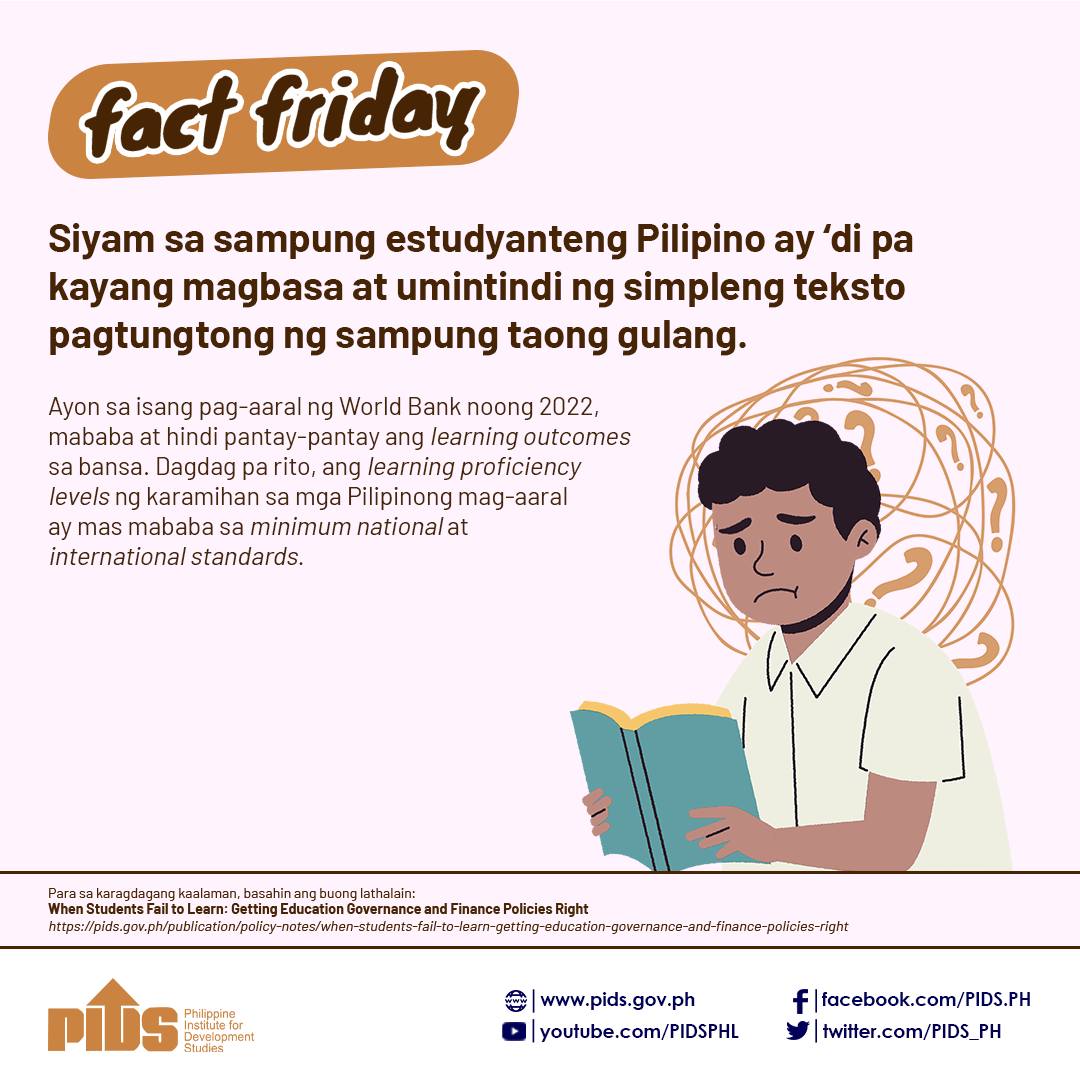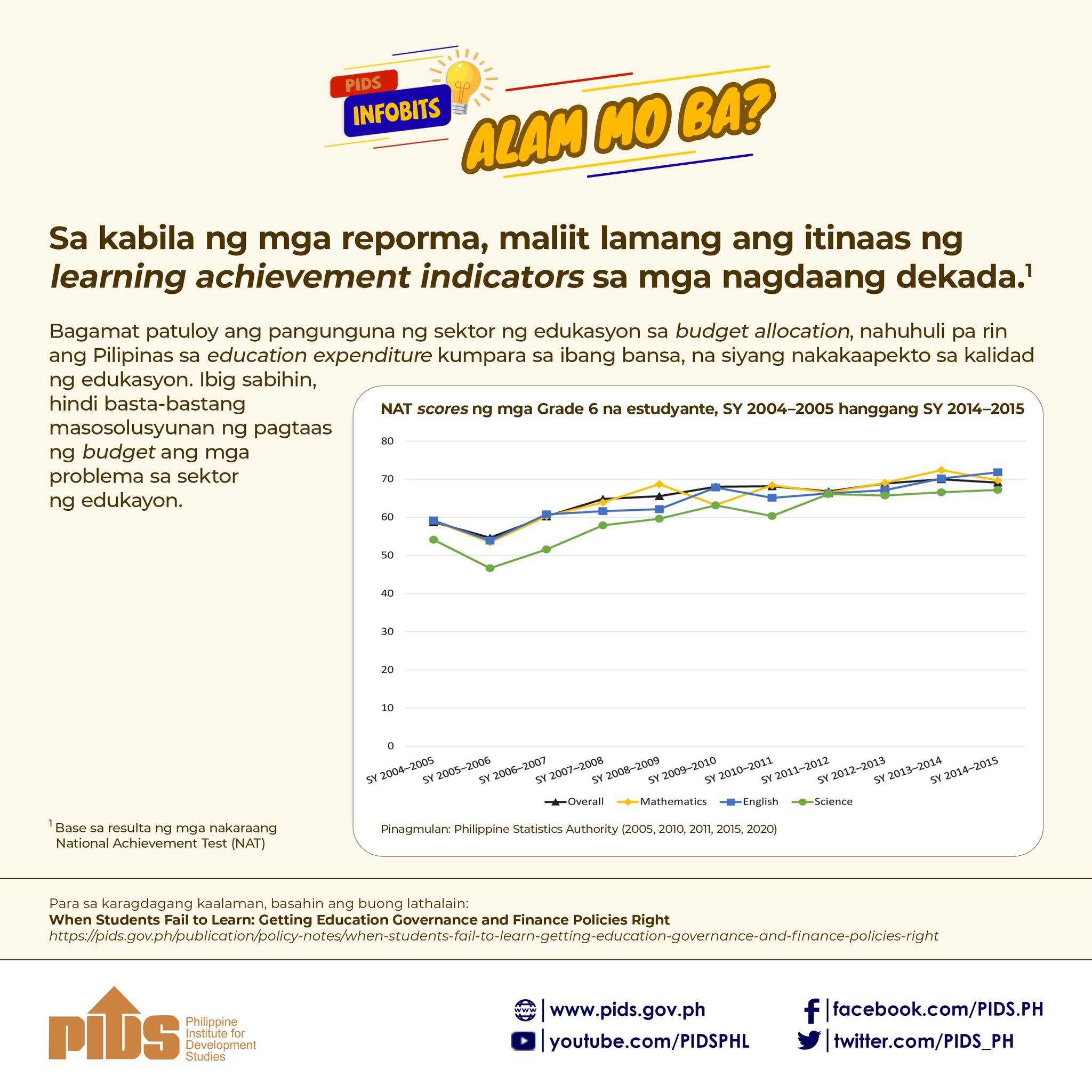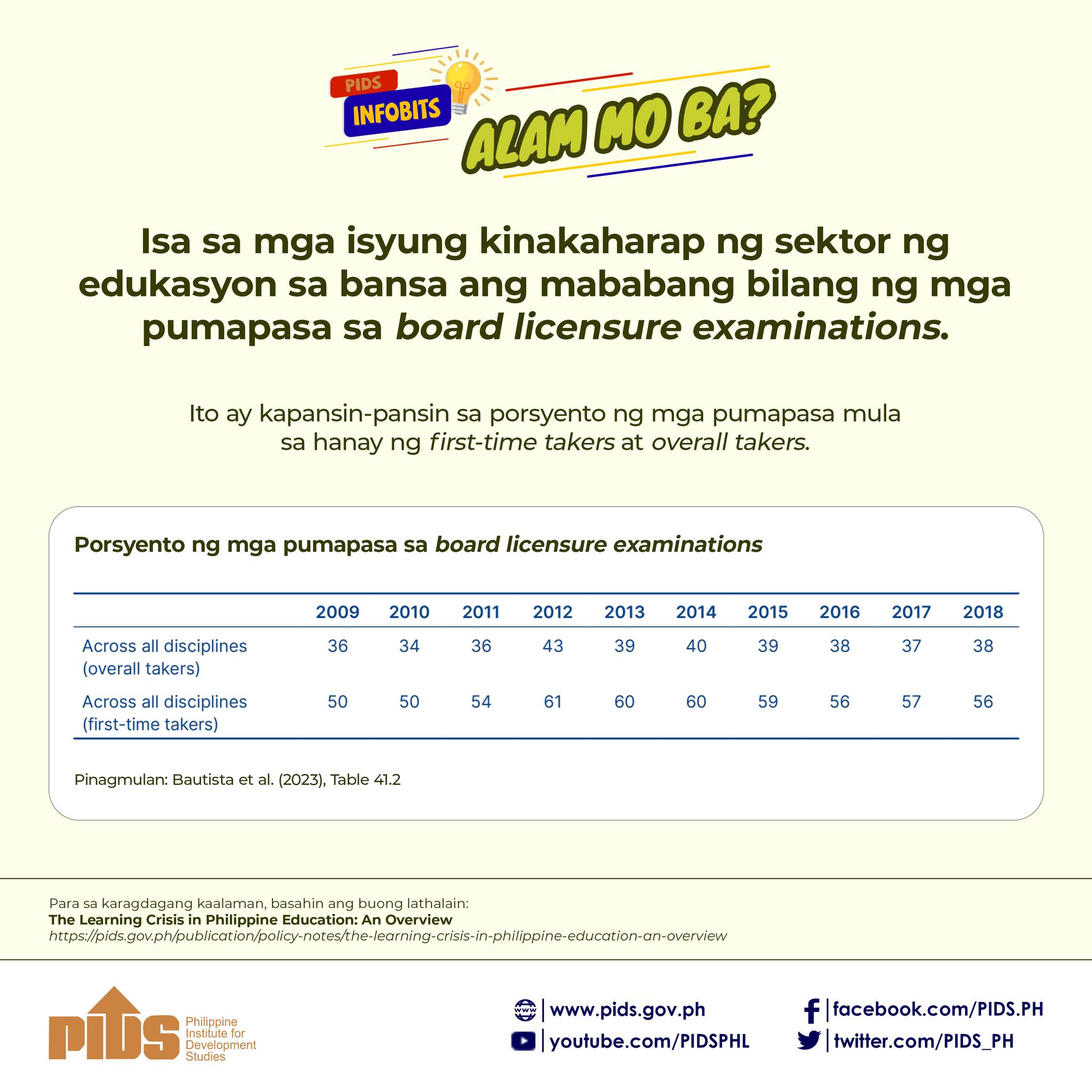ASIDE from the K – 12 program, there’s another concern the Department of Education (DepEd) has to address: its Alternative Learning System (ALS).
ALS is a parallel learning system that provides practical option to the existing formal instruction. There are two major programs on ALS – one is the Basic Literacy Program which aims to eradicate illiteracy among out-of-school youth and adults by teaching basic literacy and numeracy, and the other is the Continuing Education Program – Accreditation and Equivalency (A&E) which targets the functionally literate but did not complete basic education.
In a recent public seminar organized by state think-tank Philippine Institute for Development Studies, Takiko Igarashi, one of the authors of a World Bank report on the ALS, noted the low participation and passing rates in the ALS which she said are indications that the program is “not fully effective.”
There are around 6.6 million potential enrollees aged 15-30 to the ALS program. However, less than 10 percent were enrolled in 2017. Igarashi further noted that of those who initially enrolled, only 60 percent attended classes regularly and only about 20 percent eventually passed the A&E exams. This was attributed to high opportunity costs of attending ALS programs given that many of these potential enrollees are parents who attend to their children or adults who are working.
What can DepEd do?
It may focus on providing skills training that can help ALS participants to get better jobs in the future. This way, the high uncertainty of economic returns of participating in the ALS will be greatly reduced.
It should also assess the current skills trainings offered by ALS facilitators and explore potential training partnerships with local industries and relevant government agencies such as the Technical Education and Skills Development Authority and Department of Labor and Employment.
A major roadblock is on financing. Unlike in formal public schools where operating expenses are funded by the national budget, DepEd finances the ALS by providing resources to individual facilitators. The World Bank study noted that 60 percent of the budget is spent by facilitators on transportation and basic supplies such as paper and folders and little is left to buy other learning materials.
The availability of ALS learning modules is a persistent challenge on the ground, with 70 percent of facilitators without enough copies for their students. As a result, only one in every three active learners can take home the modules for self-learning, the World Bank study noted.
ALS is a good program that could help millions of people, especially the poor. DepEd must not bungle this program. A literate citizenry is key to a progressive country.












